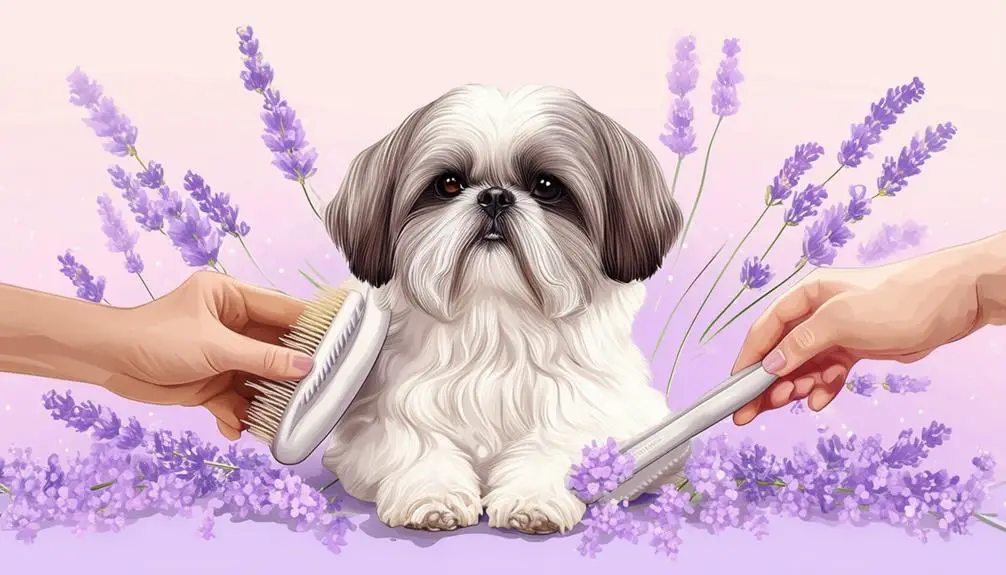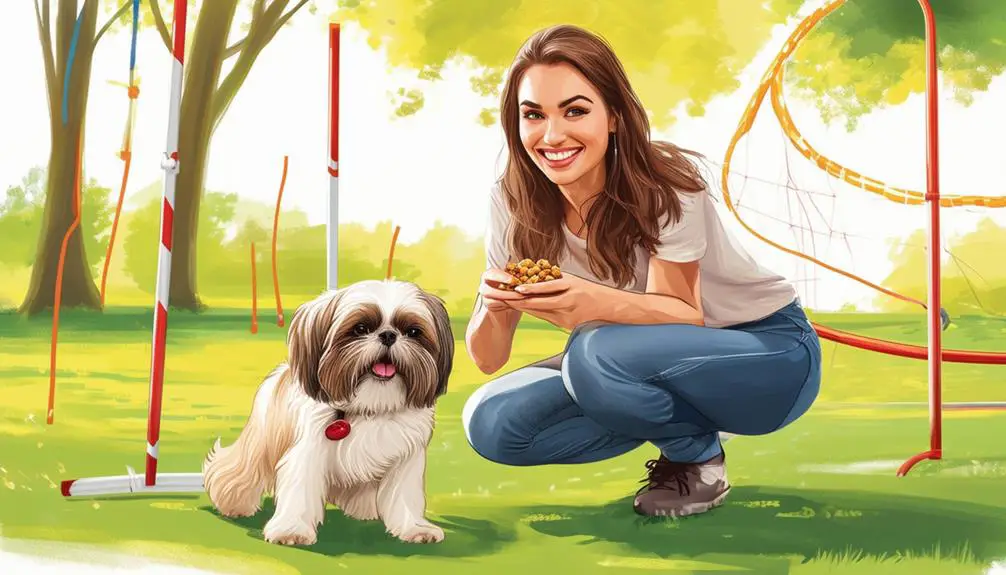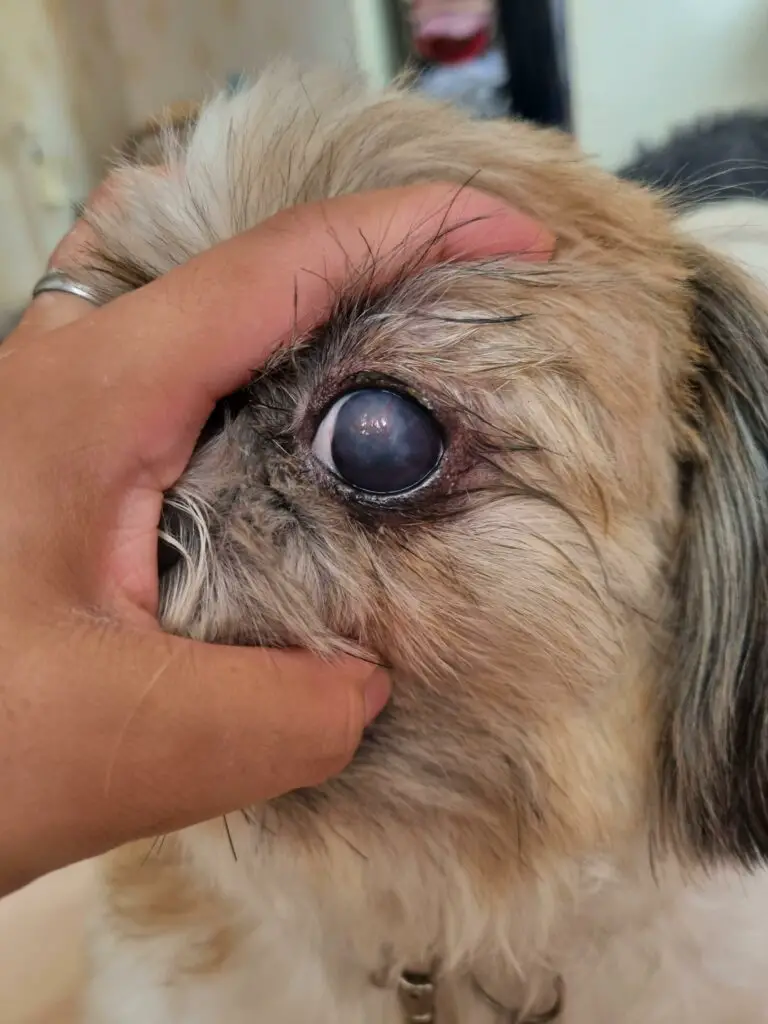
Welcoming a Shih Tzu puppy into your home is an exciting and rewarding experience. These adorable, affectionate, and playful companions bring joy and warmth to any household. However, caring for a Shih Tzu puppy requires knowledge, patience, and commitment, especially during their crucial first year. In this guide, we will cover everything you need to know to ensure your Shih Tzu puppy grows into a healthy, happy adult dog.
Preparing Your Home for a Shih Tzu Puppy
Puppy-Proofing Your Living Space
Before bringing your Shih Tzu puppy home, it’s essential to puppy-proof your living space. Shih Tzus are curious and playful, and they can get into trouble if your home isn’t safe for them. Secure loose wires, remove small objects that could be swallowed, and ensure that harmful substances like cleaning products are out of reach. Additionally, block off any areas where your puppy could get stuck or hurt.
Setting Up a Comfortable Space

Your Shih Tzu puppy needs a comfortable and secure space to call their own. Set up a cozy bed in a quiet area of your home where they can retreat to rest and feel safe. Provide them with soft blankets and toys to make their space inviting. This designated area will help your puppy feel more secure and establish a routine.
Nutrition and Feeding Guidelines
Choosing the Right Food
Proper nutrition is crucial for your Shih Tzu puppy’s growth and development. Choose a high-quality puppy food specifically formulated for small breeds. These foods are designed to meet the unique nutritional needs of Shih Tzus, providing them with the right balance of protein, fats, vitamins, and minerals. Consult your veterinarian for recommendations on the best food for your puppy.
Feeding Schedule and Portion Control
Establishing a regular feeding schedule is important for your Shih Tzu puppy. Most puppies need to eat three to four times a day. Follow the feeding guidelines on the food packaging, but also monitor your puppy’s weight and adjust portions as needed. Overfeeding can lead to obesity, which is a common issue in Shih Tzus, so it’s essential to maintain portion control.

Health and Veterinary Care
Regular Veterinary Check-Ups
Regular veterinary check-ups are vital to ensure your Shih Tzu puppy remains healthy. Schedule your first visit within a few days of bringing your puppy home. Your vet will conduct a thorough examination, administer necessary vaccinations, and discuss a vaccination schedule. Regular visits will also help you catch any potential health issues early.
Vaccinations and Preventative Care
Vaccinations protect your Shih Tzu puppy from various diseases. Follow your vet’s recommended vaccination schedule, which typically includes shots for distemper, parvovirus, rabies, and other common canine illnesses. Additionally, discuss preventative care measures such as flea and tick control, heartworm prevention, and dental care.
Grooming and Hygiene
Coat Care and Brushing

Shih Tzus have a luxurious double coat that requires regular grooming to prevent matting and tangling. Brush your puppy’s coat daily using a slicker brush or comb to remove loose hair and prevent knots. Regular brushing also helps distribute natural oils, keeping their coat healthy and shiny. Consider scheduling professional grooming sessions every 4-6 weeks.
Bathing and Ear Cleaning
Bathe your Shih Tzu puppy every 3-4 weeks using a gentle, puppy-specific shampoo. Avoid over-bathing, as it can dry out their skin. After bathing, ensure their ears are clean and dry to prevent infections. Use a vet-recommended ear cleaner and gently wipe the outer part of the ears with a cotton ball.
Training and Socialization
Basic Obedience Training
Start basic obedience training early to instill good manners and behaviors in your Shih Tzu puppy. Focus on commands such as “sit,” “stay,” “come,” and “down.” Use positive reinforcement techniques, such as treats and praise, to reward good behavior. Consistency and patience are key to successful training.

Socialization with People and Other Pets
Socialization is crucial for your Shih Tzu puppy’s development. Expose them to various people, environments, and other animals from a young age. This helps them become well-adjusted and confident adults. Arrange playdates with other dogs, take them to puppy classes, and introduce them to different sounds and sights in a controlled manner.
Exercise and Playtime
Providing Adequate Physical Activity
While Shih Tzus are small, they still need regular exercise to stay healthy and happy. Provide your puppy with short, daily walks and play sessions. Avoid over-exercising, especially in extreme weather conditions, as Shih Tzus are prone to heat exhaustion and breathing difficulties.
Mental Stimulation and Enrichment
In addition to physical exercise, mental stimulation is essential for your Shih Tzu puppy’s well-being. Provide interactive toys, puzzle feeders, and engage in training games to challenge their mind. Mental enrichment helps prevent boredom and reduces the risk of behavioral issues.
Understanding Common Health Issues

Recognizing Signs of Illness
Shih Tzus are prone to certain health issues, including respiratory problems, dental issues, and eye conditions. It’s important to recognize signs of illness early. Watch for symptoms such as coughing, sneezing, excessive scratching, changes in appetite, and abnormal discharge from the eyes or nose. If you notice any concerning signs, consult your veterinarian promptly.
Dental Care
Dental health is a common concern for Shih Tzus. Establish a dental care routine early by brushing your puppy’s teeth regularly with a dog-specific toothpaste and toothbrush. Dental chews and toys can also help keep their teeth clean. Regular dental check-ups with your vet are essential to prevent periodontal disease.
Bonding and Emotional Well-Being
Building a Strong Bond

Building a strong bond with your Shih Tzu puppy is crucial for their emotional well-being. Spend quality time together, engage in play, and offer plenty of affection. Shih Tzus thrive on human companionship and enjoy being close to their owners. Positive interactions and consistent care help strengthen your bond and create a loving relationship.
Managing Separation Anxiety
Shih Tzus can be prone to separation anxiety due to their strong attachment to their owners. Gradually acclimate your puppy to being alone by leaving them for short periods and gradually increasing the duration. Provide comforting items, such as a favorite toy or blanket, and create a safe and cozy space for them to stay when you’re away.
Conclusion
Caring for a Shih Tzu puppy during their first year is a rewarding journey that requires dedication, patience, and love. By providing proper nutrition, regular veterinary care, grooming, training, and plenty of affection, you can ensure your Shih Tzu puppy grows into a healthy and happy adult dog. Understanding their unique needs and behaviors will help you build a strong bond and create a fulfilling life for your new furry friend. Remember, the effort you put into caring for your Shih Tzu puppy will be rewarded with years of joy and companionship.


